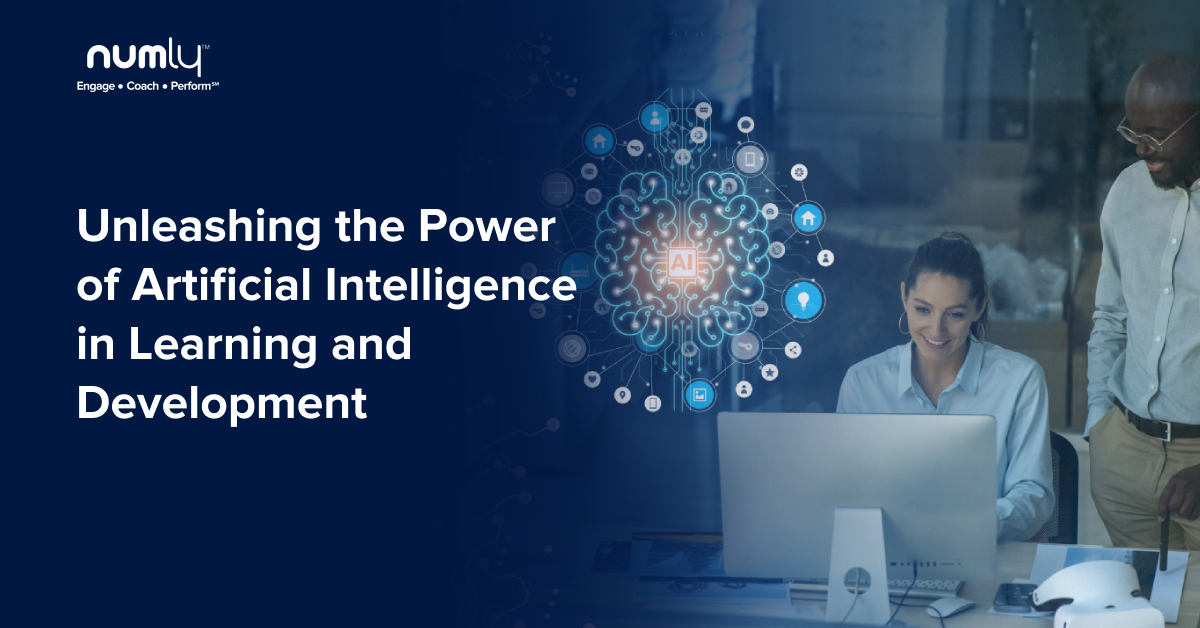In the dynamic landscape of today’s technological era, traditional approaches to learning and development often struggle to keep pace with the ever-expanding demands of the modern workforce. This is where Artificial Intelligence (AI) has emerged as a transformative force in various industries. One domain where the impact of AI is particularly profound is Learning & Development. This blog delves into the extraordinary potential and transformative power that AI brings to the realm of professional growth.
Integrating AI into learning and development processes has proven to be a game-changer, revolutionizing how we acquire, assess, and apply knowledge. Whether or not it’s a part of your current role, AI is used in various industries, such as logistics, translation services, and medicine.
In this blog, we will explore the myriad uses of AI in learning and development and how it is reshaping the future of Learning & Development.
Personalized Learning
One of the most significant advantages of AI in learning and development is its ability to create personalized learning paths for individuals. AI in L&D marks a departure from the conventional one-size-fits-all approach. Leveraging machine learning algorithms, personalized learning experiences are crafted by analyzing individual learning patterns, preferences, and performance data. This ensures that educational content is delivered in a manner that resonates with each learner, fostering a more efficient and engaging learning process.
Skill Gap Analysis
The world is in a state of perpetual change, and so too are the skills and knowledge needed to succeed. Identifying skill gaps within an organization is a pivotal aspect of L&D. AI tools analyze employee performance data to pinpoint areas that need improvement. This enables organizations to design targeted training programs, addressing specific skill deficiencies and aligning learning initiatives with strategic business objectives.
Adaptive Learning Paths
Addressing the challenge of varying learning paces, AI introduces adaptive learning paths. These paths dynamically adjust based on a learner’s progress, offering additional support or challenges as needed. This not only optimizes the learning process but also ensures a more profound comprehension of the subject matter.
Predictive Analytics for Employee Performance
Predictive analytics, driven by AI, forecasts employee performance trends. By analyzing historical data, AI models identify patterns and predict future outcomes. This insight empowers organizations to proactively address potential issues, optimize training programs, and ensure employees are well-prepared for evolving job requirements.
Intelligent Content Recommendations
AI streamlines content curation by analyzing extensive data sets to provide intelligent content recommendations. Machine learning algorithms sift through vast information, offering learners timely and relevant resources. This not only saves time but also maintains engagement by delivering content aligned with individual interests and career objectives.
Continuous Learning and Microlearning
AI facilitates the implementation of continuous learning models by delivering bite-sized, on-demand content through microlearning modules. Learners can access relevant information whenever needed, fostering a culture of continuous improvement within organizations.
Virtual Reality & Augmented Reality Integration
The fusion of AI with VR and AR technologies elevates learning experiences to unprecedented levels. Immersive technologies create realistic simulations, enabling learners to apply theoretical knowledge in practical scenarios. This hands-on approach enhances retention and bridges the gap between theory and real-world application.
Automated Content Creation
AI can help automate content creation, reducing time on administrative tasks, freeing up time for innovation, and speeding up tasks like summarizing text, generating question banks, creating photos, and generating questions for clients based on their needs analysis.
Content Curation
AI algorithms can comb through vast educational content repositories to curate resources most relevant to learners’ goals and interests. This streamlines the finding of quality materials and ensures learners are exposed to diverse resources, enhancing the learning experience. AI can transcribe webinars, podcasts, and even videos through natural language processing, reducing the time and cost associated with these tasks.
Language Translation and Accessibility
AI-driven language translation tools make learning more accessible to a global audience. Learners can access content in their native languages, breaking down language barriers and increasing inclusivity in education and training.
The paradigm shift brought about by AI in Learning and Development transcends traditional educational frameworks. From personalized learning experiences to predictive analytics, AI is revolutionizing how individuals acquire knowledge and skills. Embracing these advancements not only empowers organizations to stay competitive but also nurtures a culture of continuous learning and professional growth. As we navigate the future of education and development, the synergy between human intelligence and artificial intelligence promises to unlock new frontiers in knowledge acquisition and skills enhancement, ushering in an era of unprecedented possibilities.
Provide the people managers in your organization an opportunity to improve their learning & development journey to become Better Leaders and build Resilient Teams. Start a 60-day pilot of NumlyEngage™.

